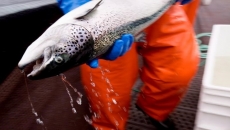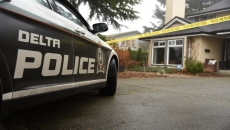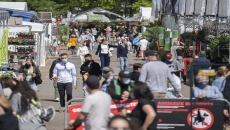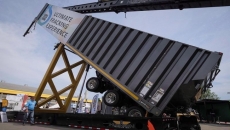Today, we are launching the last phase of public engagement on our residential citywide permit parking initiative. The proposed Climate Emergency Parking Program is designed to:
- Encourage people to purchase cleaner vehicles
- Reduce air and carbon pollution
- Fund climate emergency actions
The proposed program would also allow us to respond more effectively to localized parking issues as Vancouver grows.
Proposed initiatives
From June 14 to July 5, we are asking residents for their feedback in a city-wide survey on the following proposed initiatives that work together and were shaped by input from the public and stakeholders earlier this year:
- An annual pollution charge the city’s “Climate Emergency Parking Program” proposes Vancouverites who own a 2023 or newer “high-polluting” vehicle — described as a gas-powered luxury sports car, large SUV or full-size pickup truck — would be charged $1,000 per year to get a residential parking permit.
- A new overnight residential parking permit (about $45/yr). Owners of 2023 or newer vehicles deemed “moderately polluting” — gas-powered sporty sedans or higher efficiency small SUVS — would have to pay $500 for the same permit.
“With this proposed program, Vancouver would be joining a number of cities around the world that have implemented pollution charges for residential parking, including Sydney, Australia and Montreal,” says Paul Storer, Director of Transportation. “Not only would this program substantially reduce emissions and help us reach our Climate Emergency targets approved by Council in November 2020, it can help us better manage our curb space to serve residential areas.”
Looking for your feedback
Through the survey, we are keen to learn from all residents whether they agree with the concept of a pollution charge and the dollar amounts being proposed depending on vehicle type. We are also seeking input on which vehicles should be exempted beyond older ones and those modified for wheelchair users.
Similarly, we encourage residents to share their thoughts on the proposed residential overnight parking permit, including cost and how it would work for visitors. Feedback from across the city will help shape the recommendations brought forward to Council for decision later this year.
Burning gas and diesel in vehicles is a major contributor to climate change—accounting for 40% of the carbon pollution generated in Vancouver. By encouraging residents to shift to electric or renewable fuel vehicles, the pollution charge would achieve about 10% of the emissions reductions the Climate Emergency Action Plan is striving to achieve through the switch to cleaner vehicles.
Revenue to help fund climate actions
Pending Council approval, revenue from the program would help fund key climate actions such as:
- Making our sidewalks safer and more accessible
- Improving bus speed and reliability
- Expanding our public charging network for electric vehicles
- Adding more trees and greenspace
- Converting buildings from natural gas to renewable energy
Take the survey to help refine the program before it goes to Council for decision later this year. If approved, the program would be implemented in 2022.
Photo courtesy of City of Vancouver.






